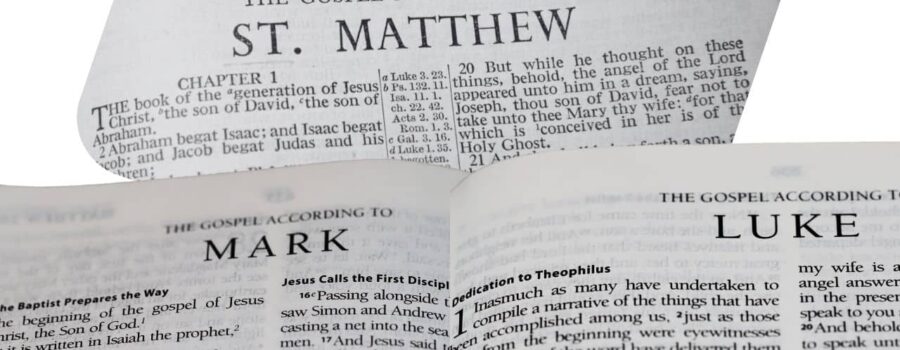The Synoptic Gospels provide a unique and multi-perspective account of the life, teachings, and existence of Jesus Christ. Three of the Gospels—Matthew, Mark, and Luke—are known as the Synoptic Gospels due to their similarities in structure, content, and language. While these similarities are apparent, a closer examination reveals nuanced differences that not only enrich our understanding of Jesus’ life but also strengthen the case for his historical existence.
Comparing the Synoptic Gospels
The Synoptic Gospels offer parallel narratives of Jesus’ ministry, miracles, parables, and crucifixion. However, each Gospel presents a distinctive perspective, emphasizing certain aspects of Jesus’ life based on the intended audience and theological goals of the respective authors.
Matthew
Matthew, a tax collector turned disciple, emphasizes Jesus as the fulfillment of Old Testament prophecies. This Gospel provides a detailed genealogy, tracing Jesus’ lineage back to Abraham, highlighting his messianic credentials. Matthew often includes Jesus’ teachings on morality and righteousness, catering to a Jewish audience familiar with the Law.
Mark
Mark, the shortest and likely earliest Gospel, focuses on the actions of Jesus. The narrative is fast-paced, emphasizing miracles and the immediate impact of Jesus’ ministry. Mark’s account is vivid and straightforward, reflecting a sense of urgency in spreading the Gospel message. Mark’s Gospel is likely based on the eyewitness account of Peter.
Luke
Luke, a physician and companion of the apostle Paul, writes with a broader, more inclusive perspective. His Gospel is characterized by an emphasis on compassion, parables, and the universality of salvation. Luke provides a detailed nativity account and often highlights Jesus’ interactions with marginalized individuals.
The Synoptic Gospel “Problem”
The differences among the Synoptic Gospels may initially seem challenging, but they contribute to a more comprehensive understanding of Jesus. Harmonizing the narratives reveals a multi-faceted view of his life and teachings. For example, the Gospel of Matthew may provide additional details on Jesus’ teachings that complement Mark’s emphasis on action.
The variations in the Synoptic Gospels also lend credibility to the notion of eyewitness accounts. The differences are not contradictions but reflections of the diverse perspectives of those who witnessed and later shared their experiences of Jesus. The Gospel writers were not detached historians, but individuals deeply invested in the events they recorded.
Despite the nuanced differences, the Synoptic Gospels align on crucial historical events, such as Jesus’ crucifixion and resurrection. This consistency across multiple accounts from different authors reinforces the historical reality of these significant events. It is noteworthy that these narratives were circulated and accepted within the early Christian community, suggesting a shared understanding of Jesus’ life and teachings.
Strengthening the Case for Jesus’ Existence
The combined testimony of the Synoptic Gospels, despite their unique perspectives, forms a robust foundation for the historicity of Jesus. The convergence of essential details, such as his life, death, and resurrection, enhances the credibility of the Gospel accounts. Additionally, the willingness of the Gospel writers to include embarrassing details, such as the disciples’ doubts and Peter’s denial, speaks to their commitment to truthful reporting rather than myth-making. Also remember, these accounts were written approximately 20-40 years after the crucifixion of Jesus, a time when there would have been many still alive to refute their testimony.
The Synoptic Gospels, with their similarities and differences, provide a rich tapestry of Jesus’ life and teachings. Far from weakening the case for his existence, the distinctive perspectives presented in Matthew, Mark, and Luke offer complementary insights that contribute to a more complete and nuanced understanding of the historical Jesus. As we look closer into these narratives, we find a compelling historical foundation that strengthens our confidence in the reality of Jesus Christ.
J. Warner Wallace was a homicide detective and wrote a wonderful book entitled Cold Case Christianity. The beauty of this book is how he described his own encounters with eyewitnesses and how this helped corroborate what the Gospel writers also experienced. I highly recommend this be a part of your library!
Also, be sure to check out my Apologetics page for additional resources and posts.
God bless!






